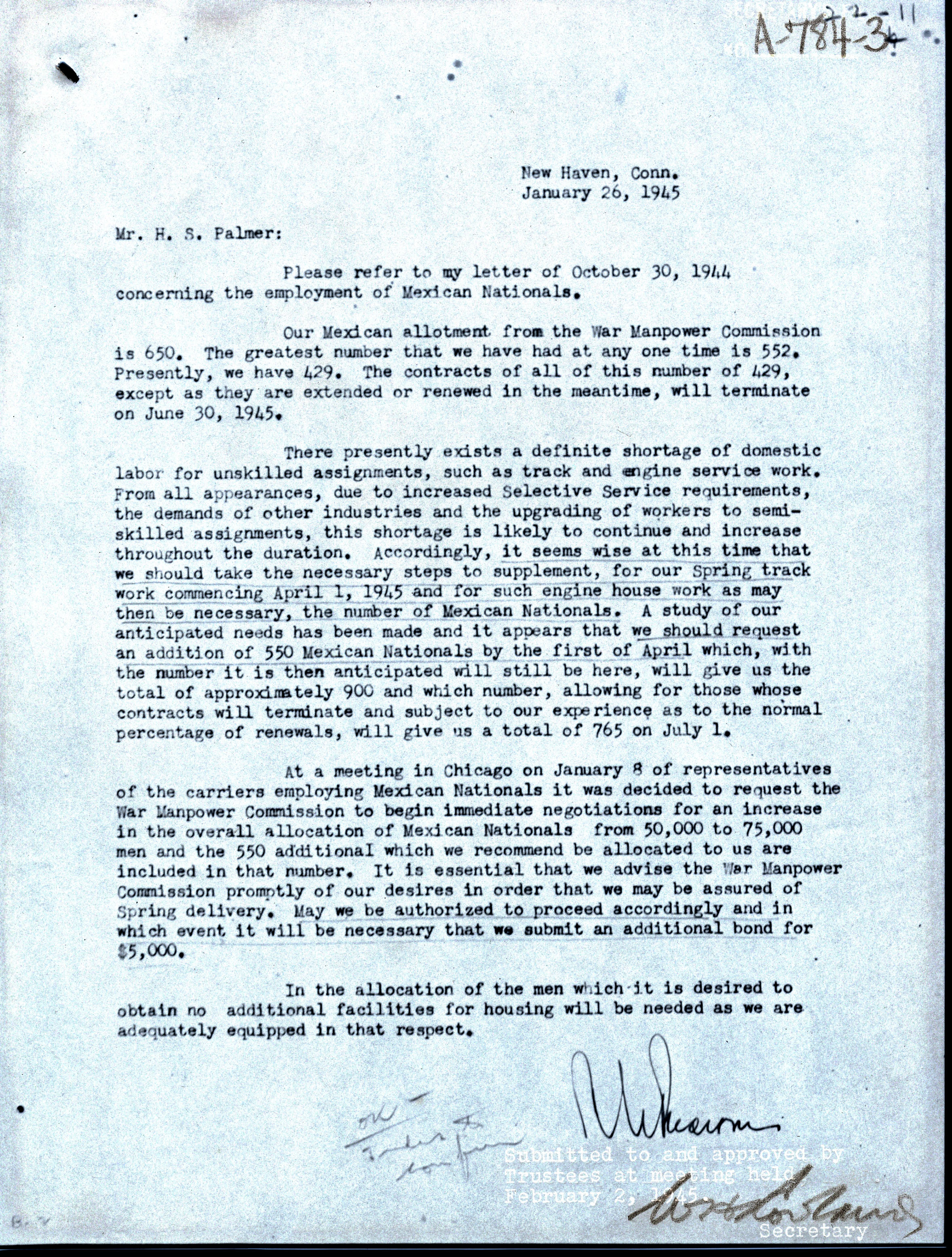In 1942 the United States government, then in the midst of fighting World War II, and Mexico entered into an agreement for Mexican citizens, predominantly men, to provide labor in the U.S. in industries that were most severely affected when many American men went to fight in the war. This program and the men, who became known as braceros, provided desperately needed labor for many industries that were pivotal to U.S. war efforts. While many of the Mexican men worked in agriculture, almost 100,000 braceros worked for the nation’s railroads, mostly providing track labor.
The New Haven Railroad participated in the program, hiring several hundreds of workers in 1944 and 1945. The railroad company built housing for the workers in the Montowese section of North Haven, Connecticut. This document from January 26, 1945, submitted to the company trustees, tells the company president that it is necessary to hire more than the original 650 men that were originally alloted to them, and that another 550 men are needed.
Here are some questions to think about when you study this document:
What were the conditions that led to the hiring of Mexican men during World War II?
What were the benefits of hiring the braceros to the railroads? What were the benefits to the men themselves? What might have been negatives in the hiring of the men?
What do you think happened to the men after the war, when the American soldiers came home and wanted their jobs back?
Do you think this is a good example of how countries can cooperate?
This resource conforms to the Connecticut Social Studies Curriculum Framework standards for high school students, 1.3 — significant events and themes in world history/internatonal studies, number 21 (analyze conflict and cooperation in world affairs).
This letter is from the New York, New Haven & Hartford Railroad Records.
Laura Smith, Curator for Business, Railroad and Labor Collections

